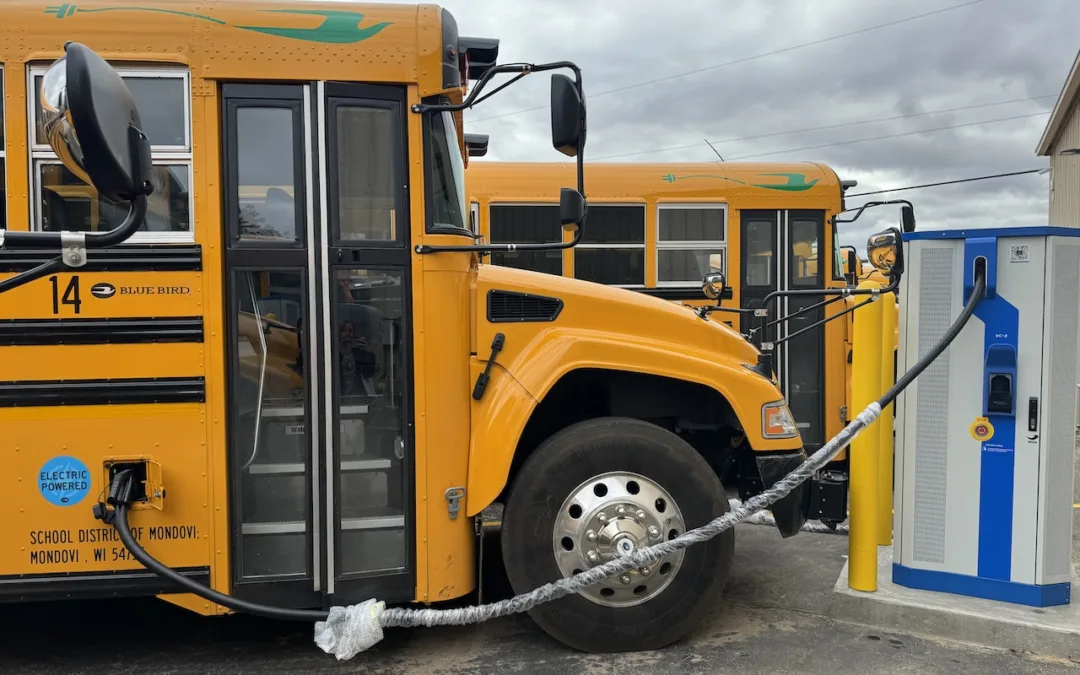
#image_title
#image_title
This time it’s in Shell Lake where community accomplishments will go unrecognized and local government won’t have a watchdog.
Andy Eiche and his family had been in town for less than a week before a photo of his two daughters appeared on the front page of the Washburn County Register, the local weekly newspaper that has been chronicling community life for 131 years.
That was in 2008, and Eiche, the Shell Lake city administrator, was at a Fourth of July parade. So was Larry Samson, the ubiquitous Register writer and photographer.
“It’s amazing how much pictures are important to them,” Eiche said in an interview in his City Hall office. “That’s going to be gone.”
The Register, started in 1889, is shuttering at the end of September.

No more photos of high school graduates, parades, nature classes at Hunt Hill Audubon Sanctuary and Amish farmers putting up hay. Eiche noted that parents will not have photos of their daughters and sons playing sports to send to grandpa and grandma either.
“Any sporting event I went to,” said Eiche, the father of four, “guess who was there? Larry Samson.”
A Growing Financial Burden
The news broke on Wednesday, Aug. 12, in a story written by Gary King, who serves as editor of the Register as well as the companion Inter-County Leader based in Frederic, about 30 miles west of Shell Lake. Both are published by the Inter-County Cooperative Publishing Association, which was established 87 years ago and includes five advertising publications. The cooperative —the only one to own a newspaper in the United States — purchased the Register in 2004.
“The Inter-County Cooperative Publishing Association bought the Washburn County Register when it was struggling—and even found new readers—but in the end it wasn’t able to save it without damaging its bottom line,” the newspaper said in the first of a three-part series on what it called the crisis facing local newspapers.
Richard Lee started as just the sixth general manager of the cooperative manager on June 29, and it didn’t take him long to figure out that the Register was in trouble. The paper has a current circulation of 1,500 and charges just 75 cents per copy.
In its announcement, the paper attributed the closure to “a growing financial burden, which has been accelerated by the coronavirus pandemic.”
“Obviously for this community and the surrounding community, we are very sad to see such a historical [newspaper] gone,” Lee said in an interview. “It provides a wealth of information locally.”

Lee said that as a cooperative, its weekly papers and the advertising publications do not have the same financial pressures that for-profit publications operate under. But still, he said, “We have similar challenges facing other papers: We have to make money.”
As the paper itself said in its series on local newspapers: “It appears society and readers have moved on from the print product but stalwarts of the old newspaper industry remain, holding on to the golden age of print while the product slowly drains a paper’s resources.”
News Deserts and Local Poverty
Penelope Muse Abernathy, the Knight Chair in Journalism and Digital Media Economics at the University of North Carolina in Chapel Hill, is a leading national expert on the reasons behind the growing demise of newspapers. The numbers are not pretty and the Washburn County Register, as a weekly paper, fits the pattern.
“What we have seen is, we have lost a fourth of the country’s papers over the past 15 years,” Abernathy said, or 2,100 of the 9,000 papers that existed in 2004. “Of the ones we have lost, all but 70 have been non-dailies” like the Register.
According to her research, Wisconsin saw a 28 percent decline in newspapers between 2004 and 2019, which obviously does not include any new effects of the COVID-19 pandemic. In 2004, there were 35 daily newspapers and 239 weekly newspapers in Wisconsin. By the end of 2019, Wisconsin had lost two daily papers and 75 weeklies
Also during those 15 years, total newspaper circulation in Wisconsin had slid 39 percent, to 520,000 for daily newspapers and one million for weeklies.
In June, Abernathy and her team at the UNC Hussman School of Journalism and Media offered these statistics and more in a report titled “News Deserts and Ghost Newspapers: Will Local News Survive?,” The report examines “news deserts,” which Abernathy has defined as “a place where there is limited access to the type of critical news and information that I need in order to make informed decisions about the quality of my life.”
Abernathy said it’s clear that a healthy newspaper also needs a healthy local economy to survive. “Of the 2,100 newspapers we have lost,” she said, “the vast majority have been in economically struggling communities, often with poverty rates of 30 percent or more. That speaks to the fact that those communities do not have enough businesses or readers who can support that news operation through subscriptions, advertising or other business-related functions.”
In Washburn County, the median annual household income is $44,437, compared with $55,000 statewide. The city of Shell Lake has lost an estimated 1.34 percent of its population in the last decade.
The upshot of this newspaper upheaval, Abernathy said, is an “increasing economic and digital divide” between communities that have news coverage and those that do not.
Loss of Government Oversight
Kristen Hare also tracks and reports on the status of local newspapers as part of her job covering local news innovation for the Poynter Institute, a Florida-based organization that supports journalists and journalism. She maintains a running list of newsrooms that have closed since the pandemic hit the United States, a list with more than 50 names.
“The best way to describe it is, those that have been hit the hardest were those with pre-existing conditions,” Hare said of the shuttered newsrooms. “Print in particular has been struggling for the last decade or more, since the Great Recession.”
Hare and others said the effects of losing a newspaper in a community are myriad.

“There is no oversight” of local government, she said. “The chance for shenanigans grows much higher.”
Studies have shown, she said, that in communities without newspapers, fewer people run for office and voter turnout declines, a blow to democracy.
Besides not having anyone attending the local school board meeting, she said, “Nobody is tracking the lives and deaths of people in the community.”
She added: “We are so disconnected already, we are so polarized. When we lose local news, it’s another wall that goes up.”
An Opportunity, or a Risk
It remains to be seen what will happen in Shell Lake after the Register closes. There is another weekly, the Spooner Advocate, only six miles away, but no one knows if management will see covering Shell Lake as a business opportunity or a financial risk not worth taking. Requests for comment from officials of the Advocate’s owner, APG Media of Wisconsin, part of the Adams Publishing Group, were not successful.
Eiche said the city will turn to the Advocate for its legal advertising. Richard Lee said it is uncertain whether the Inter-County Leader will be able to expand its own coverage area to Shell Lake.
“It comes back to we have to have circulation going through there,” Lee said.
Dave McNulty, a Shell Lake Realtor, summed up what the loss of the Washburn County Register will mean for this picturesque lakeside town: “It is really sad. It’s such a great small town paper and they do such a great job covering what happens in the community. It’s a big loss from a business standpoint and a personal standpoint.”
McNulty said he has three sons, and “I don’t think a month goes by that one of the boys is not in the paper for something. The news these days is so depressing. To have a small town paper actually focus on the good things that are happening —I’m going to miss the paper a lot.”
Politics

Eric Hovde’s company exposed workers to dangerous chemicals, OSHA reports say
A Madison-based real estate company run by Wisconsin US Senate candidate Eric Hovde settled with the Occupational Safety and Health Administration...

Plugged in: How one Wisconsin school bus driver likes his new electric bus
Electric school buses are gradually being rolled out across the state. They’re still big and yellow, but they’re not loud and don’t smell like...
Local News

Stop and smell these native Wisconsin flowers this Earth Day
Spring has sprung — and here in Wisconsin, the signs are everywhere! From warmer weather and longer days to birds returning to your backyard trees....

Your guide to the 2024 Blue Ox Music Festival in Eau Claire
Eau Claire and art go hand in hand. The city is home to a multitude of sculptures, murals, and music events — including several annual showcases,...



